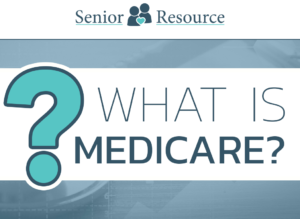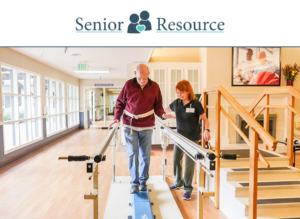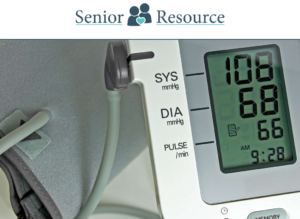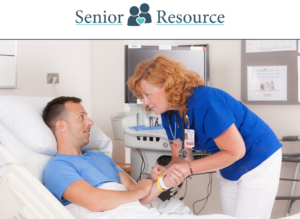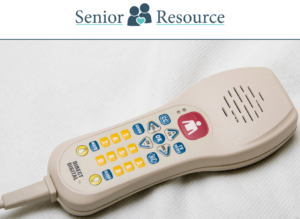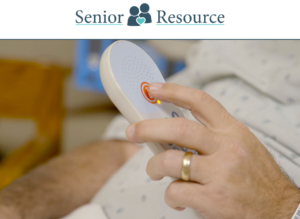How can we help you?
We are all about providing resources for senior citizens.
The Top 5 Medicare Myths
- Everyone is eligible for the same benefits under Medicare. Currently, the Medicare options are different for every persona and can be quite overwhelming. Prior to becoming eligible for Medicare benefits, you should call 1-800-medicare 1-800-633-4227 and ask for information and seminars.
- Private Insurance is better than Medicare. Medicare is a very comprehensive program. Most Providers prefer Medicare covered patients to patients covered by private insurance companies.
- Medicare is free. Medicare is not free. Depending on your individual situation there may be costs associated with your Medicare coverage, but these costs are typically lower in overall costs than similar private insurance plans.
- You have to be 65 to be eligible for Medicare. While this is typical for most recipients, some individuals receive Medicare benefits much earlier. Persons with disabilities are often eligible for Medicare at any age. To check your eligibility go to www.medicare.gov
- If I allow a private insurance company to manage my Medicare benefit, I will have twice as much coverage. This is not exactly true. Each insurance company offers different resources and solutions to managing a Medicare Advantage Plan. For more details on Medicare Advantage Plans complete this form and we will match you with experts in your area.
Helping Seniors Navigate Life Decisions
How Online Reviews Influence Senior Care Decisions | What Families Should Know
How Online Reviews Influence Senior Care Decisions Choosing a senior care provider whether a nursing home, assisted living facility, or memory care community is one of the most important decisions families make. Increasingly, families turn to online reviews to gauge quality, culture, and care experience. But not all online reviews are created equal. Understanding how online reviews influence senior care decisions, and what to watch for, can help families make better-informed choices. 1. Why Online Reviews Matter in Senior Care Online reviews serve as a window into other families’ experiences with a facility. They can highlight: Communication with families…
Read MoreReverse Mortgage Basics
What is a Reverse Mortgage? A reverse mortgage is a type of loan that allows homeowners who are 62 years of age or older to convert some of their home equity into cash. Unlike a traditional mortgage where the borrower makes monthly payments to the lender, with a reverse mortgage, the lender pays the borrower. There are different types of reverse mortgages available, but the most common one is a Home Equity Conversion Mortgage (HECM), which is insured by the Federal Housing Administration (FHA). To qualify for a reverse mortgage, the borrower must own the home outright or have…
Read MoreWhat is Medicare?
Medicare is federal insurance that workers earn after a lifetime of working. The Medicare part A benefit pays for stays at rehabilitation centers. Medicare allows for up to 100 days of inpatient Skilled Nursing Rehabilitation per episode.
Read MoreWhat is a Skilled Nursing Rehabilitation Facility?
A Skilled Nursing Rehabilitation Facility is a short-term rehabilitation facility where stable patients go after a hospital stay. The stay is intended to help people get stronger, practice independence and prepare for returning home.
Read MoreWhat do I need to bring to a Skilled Nursing Rehabilitation Facility?
New patients should generally bring enough comfortable clothing for one week. We advise bringing shoes that are comfortable and allow for walking if appropriate.   We encourage patients to bring anything that could make their stay more comfortable: examples: robe, favorite blanket, pajamas, pictures of family, books, puzzles, etc…   We strongly advise that you leave valuables at home.
Read MoreHow often will I see a doctor in a Skilled Nursing Rehab Facility?
The frequency in which you will be seen depends on your specific medical needs and the physician group. Unlike the hospital, you will most likely not see a doctor every day. You will typically see a Doctor, Physicians Assistant, or Nurse Practicioner within 72 hours of admitting, and as-needed after that initial visit. Doctors are not in the building 24/7. Each physician group has a triage line that nursing can call 24/7 if necessary. The doctors do not work for the Facility. They belong to independent physician groups and manage the medical care of the patients.
Read MoreHow much therapy will I receive during my stay at a Skilled Nursing Rehabilitation Facility?
The amount of therapy provided at a Skilled Nursing Rehabilitation Facility is different for each patient. The therapy department creates an individualized treatment plan for every patient. Therapy is hard work for patients and proper rest is equally important. You can often request additional therapy through your therapist. Therapy is typically offered 7 days per week.
Read MoreHow much monitoring happens at a Skilled Nursing Rehabilitation Facility?
When a patient discharges from a hospital to a skilled nursing facility, the patient should be stable enough for less frequent monitoring. The frequency that each patient will be monitored depends on the individual care plan, the doctors orders, and the policies of each individual skilled nursing facility. Family members and additional care-givers can often be leveraged in order to monitor patients as often as they wish. There are typically outside services that can provide monitoring services.
Read MoreHow often should Skilled Nursing Rehab Patients be checked on?
This depends on the patient, but typically staff checks in with patients multiple times throughout the day. Typical times are: when nursing is passing medications, performing assessments and treatments; when nurse aides are assisting patients with morning and evening activities of daily living; when therapy is working with patients; at meal times, and when patients press the call button. Some patients may require more frequent monitoring, but that would need to be a part of their specific care-plan.
Read MoreCan a family member stay with me overnight?
Generally speaking — Yes! If a patient requests for companionship overnight most skilled nursing facilities will encourage the support. If you decide to spend the night, you’ll want to let the nursing staff know as soon as possible so they can make your stay as comfortable as possible.
Read MoreHow long should it take to answer call lights?
Most Skilled Nursing Rehabilitation Facilities strive to answer every call light promptly. The goal is to be at the light within 5-10 minutes. This does not mean that all needs can be met in five minutes or less. If your need can’t be immediately met, the staff member should keep your light on until it is met.
Read MoreI hear a beeping in the hallway. Is that the same call light going off all the time?
There are many different types of call light systems. Most have a beeping function that beeps the same for all rooms on each floor. It typically beeps faster for a bathroom light than for the regular call light. The system sounds the same for each call light, so even though lights are being answered, the beeping may not stop. Each time a different light is activated the system continues to beep. If this beeping is bothersome to you, please let the staff know. They can arrange to close your door, offer white noise, or move you to a location…
Read MoreAbout Us
Senior-resource.com was created to provide helpful information and resources as seniors - and their families - plan for their future.
Get In Touch
Please use the Contact Us button at the bottom of the page if there is something we can do to help you navigate your retirement.
Ready to find out more? Get started today!
Speak with someone who can help you.




